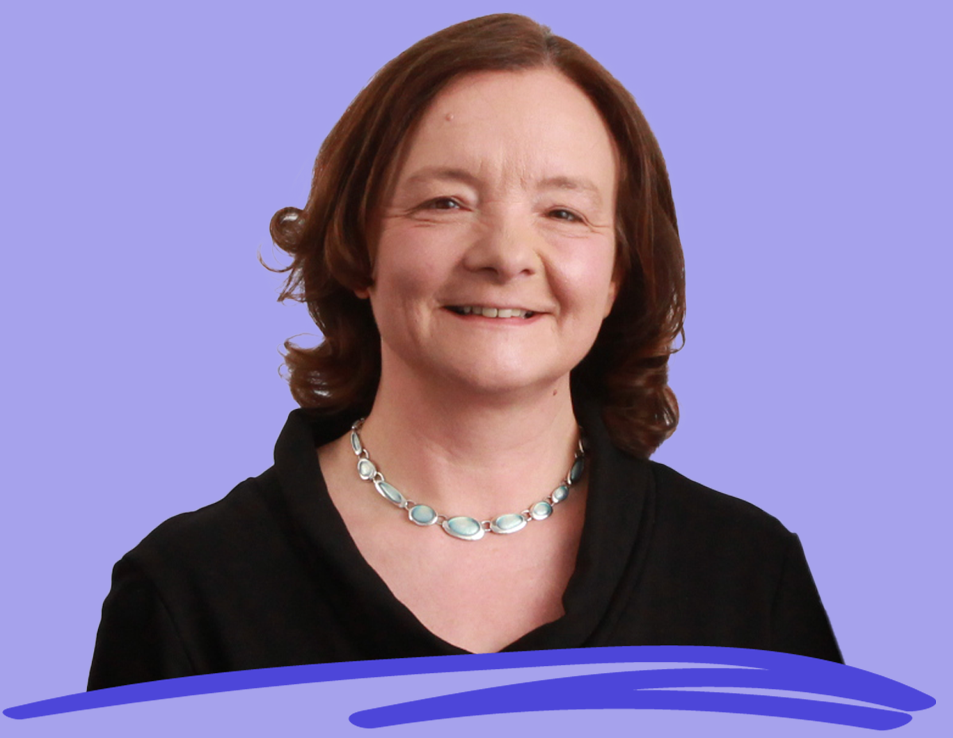Good foot forward (COPY) (COPY) (COPY)
Chris Good CA’s candour about his recovery from a mental health crisis offers a signal lesson for the profession, says President Clive Bellingham CA
Beyond the headlines
From championing sustainability reporting to broadening access to the profession, ICAS has a powerful new story to tell. But, says President Alison Cornwell CA, we must also push back against old narratives that hold auditors responsible for every company failure
Among the first duties of any new ICAS President is meeting the Financial Reporting Council (FRC) – and the FRC will, from time to time, attend meetings of the ICAS Council.
ICAS is currently working on a major research programme, Shaping the Profession, which considers what tomorrow may bring for individual CAs, firms and businesses and which will seek to ensure accountancy remains an attractive career for future generations.
The profession does, however, often have to counter negative stereotypes and bad news stories. For example, the FRC recently published its annual audit quality review. It was a mixed bag, with some firms showing a significant improvement while others came under criticism. Of course, we want to see everyone delivering high-quality audits. That isn’t just down to the auditors, though, but also the quality of information they receive.
It’s vital that directors and finance teams in audited companies are of sufficient calibre and quality, with the mindset, technical skills and ethical principles to get it right in the first case. Then you would hope to have high-quality audits that would detect any issues. Too often, however, the headlines focus solely on the auditors.
I feel there needs to be more education of the general public in this area, and the FRC is very much in agreement. We need to think together about how we get that message across.
Take the train
Audit and assurance are core to any student’s training. In the previous issue of CA magazine, I recounted the start of my journey towards my employer, Vue International, becoming an ICAS authorised training office (ATO). We want to open up the profession so that more companies take on an ICAS trainee, as there are huge benefits in employing well-educated and highly committed people which this route delivers.
Having undertaken the ATO application process myself, I can report that the forms can be completed in one day. Common sense is the key ingredient, so this process is straightforward and not time-consuming.
In my previous column, I covered the first four stages of the application form, but left the largest and final stage for this article. This is the relevant practical experience (RPE) section covering timelines and competencies.
My completed RPE template ran to four pages overall. For each of the six timelines (ethics and integrity, communications, teamwork and leadership, personal effectiveness, problem solving and decision making, technical competence), I set out some examples of the specific work experience that Vue International would provide to the student, in terms of support and exposure, indicating when the student would likely be undertaking each (ie, in their first, second or third year). There is no requirement to give examples for each of the 39 competencies.
The work areas and learning objectives in our ATO application included delivering on all aspects of the month-end accounting close for certain parts of the business, including identifying areas for improvement and proposing solutions. This ensures the smooth running of the year-end audit process through excellent planning and communication with colleagues and our external auditors.
“The student will develop a broad knowledge base through secondments and projects in other areas, such as internal audit, tax, treasury and FP&A”
Our student will also develop a broad knowledge base through secondments and projects in other areas, such as internal audit, tax, treasury and FP&A.
I’m delighted to remind you that the old, complex logbook, with its 1,200 competencies, is now a thing of the past. The new online version with 39 competencies is a huge step forward for students and ATOs alike – it is a real enabler in encouraging companies such as Vue International to gain ATO accreditation.
Our future student will update their logbook at the end of each month for discussion with our reviewing member. I have nominated myself to be our counselling member and I will review the logbook with the student on a quarterly basis, which all seems very manageable.
Embracing change
The new online logbook is just one of many significant changes introduced as part of the new syllabus, which is discussed in more detail here by our Executive Director of Learning, Gail Boag. For example, sustainability and data analytics weren’t part of the syllabus when I studied to become a CA, but they are key elements of the new syllabus today.
ICAS also plans to make these new modules available to all CAs through its new digital infrastructure. I’m planning to sign up to the sustainability module as soon as it’s available; the topic is of huge personal interest, and the flexible delivery model will enable me to study at times that are convenient to me. Successful completion will also provide CPD accreditation. This is an excellent example of lifelong learning, giving great value to ICAS and its members. It’s a very exciting development for all of us.
Learn more about making your workplace an ATO
linkedin.com/in/alison-cornwell-ca

Beyond the headlines
From championing sustainability reporting to broadening access to the profession, ICAS has a powerful new story to tell. But, says President Alison Cornwell CA, we must also push back against old narratives that hold auditors responsible for every company failure
Among the first duties of any new ICAS President is meeting the Financial Reporting Council (FRC) – and the FRC will, from time to time, attend meetings of the ICAS Council.
ICAS is currently working on a major research programme, Shaping the Profession, which considers what tomorrow may bring for individual CAs, firms and businesses and which will seek to ensure accountancy remains an attractive career for future generations.
The profession does, however, often have to counter negative stereotypes and bad news stories. For example, the FRC recently published its annual audit quality review. It was a mixed bag, with some firms showing a significant improvement while others came under criticism. Of course, we want to see everyone delivering high-quality audits. That isn’t just down to the auditors, though, but also the quality of information they receive.
It’s vital that directors and finance teams in audited companies are of sufficient calibre and quality, with the mindset, technical skills and ethical principles to get it right in the first case. Then you would hope to have high-quality audits that would detect any issues. Too often, however, the headlines focus solely on the auditors.
I feel there needs to be more education of the general public in this area, and the FRC is very much in agreement. We need to think together about how we get that message across.
Take the train
Audit and assurance are core to any student’s training. In the previous issue of CA magazine, I recounted the start of my journey towards my employer, Vue International, becoming an ICAS authorised training office (ATO). We want to open up the profession so that more companies take on an ICAS trainee, as there are huge benefits in employing well-educated and highly committed people which this route delivers.
Having undertaken the ATO application process myself, I can report that the forms can be completed in one day. Common sense is the key ingredient, so this process is straightforward and not time-consuming.
In my previous column, I covered the first four stages of the application form, but left the largest and final stage for this article. This is the relevant practical experience (RPE) section covering timelines and competencies.
My completed RPE template ran to four pages overall. For each of the six timelines (ethics and integrity, communications, teamwork and leadership, personal effectiveness, problem solving and decision making, technical competence), I set out some examples of the specific work experience that Vue International would provide to the student, in terms of support and exposure, indicating when the student would likely be undertaking each (ie, in their first, second or third year). There is no requirement to give examples for each of the 39 competencies.
The work areas and learning objectives in our ATO application included delivering on all aspects of the month-end accounting close for certain parts of the business, including identifying areas for improvement and proposing solutions. This ensures the smooth running of the year-end audit process through excellent planning and communication with colleagues and our external auditors.
“The student will develop a broad knowledge base through secondments and projects in other areas, such as internal audit, tax, treasury and FP&A”
Our student will also develop a broad knowledge base through secondments and projects in other areas, such as internal audit, tax, treasury and FP&A.
I’m delighted to remind you that the old, complex logbook, with its 1,200 competencies, is now a thing of the past. The new online version with 39 competencies is a huge step forward for students and ATOs alike – it is a real enabler in encouraging companies such as Vue International to gain ATO accreditation.
Our future student will update their logbook at the end of each month for discussion with our reviewing member. I have nominated myself to be our counselling member and I will review the logbook with the student on a quarterly basis, which all seems very manageable.
Embracing change
The new online logbook is just one of many significant changes introduced as part of the new syllabus, which is discussed in more detail here by our Executive Director of Learning, Gail Boag. For example, sustainability and data analytics weren’t part of the syllabus when I studied to become a CA, but they are key elements of the new syllabus today.
ICAS also plans to make these new modules available to all CAs through its new digital infrastructure. I’m planning to sign up to the sustainability module as soon as it’s available; the topic is of huge personal interest, and the flexible delivery model will enable me to study at times that are convenient to me. Successful completion will also provide CPD accreditation. This is an excellent example of lifelong learning, giving great value to ICAS and its members. It’s a very exciting development for all of us.
Learn more about making your workplace an ATO
linkedin.com/in/alison-cornwell-ca



